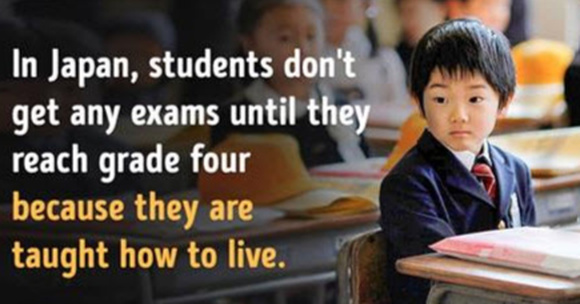People around the world recognize the intelligence, politeness, wellness and strong health of Japanese individuals. In fact, many people try to imitate the lifestyle of the Japanese so they can enjoy some of those factors themselves.
Perhaps one of the most unique parts of the Japanese culture is in their educational system. The fact of the matter is, the education they provide to their children is absolutely phenomenal when compared with others. Consider the following 10 facts about Japanese education and you will see why they are the envy of the world.
Manners before knowledge

Students in Japan don’t take exams until they reach the fourth grade at the age of 10. They take smaller tests but for the first three years of school, they establish good manners and develop the character of the students. They are taught to respect other people and to be gentle to all creatures and nature. In addition, they learn compassion, generosity and empathy.
The academic year starts April 1
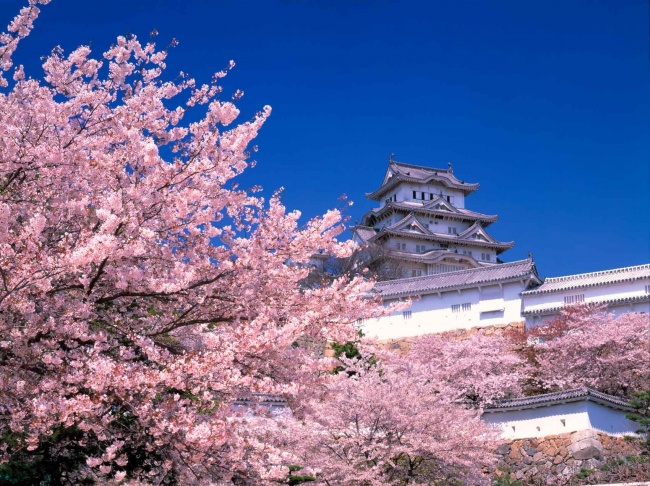
Most schools start the academic year in September but in Japan, it begins on April 1st. That is also true of the business calendar in Japan. April 1 coincides with one of the most beautiful events in Japan, the cherry blossoms. The academic year in Japan is divided into three trimesters, April 1 – July 20, September 1 – December 26, and January 7 – March 25. They also receive six weeks of holidays in the summertime and 2 weeklong breaks in the winter and spring.
The students clean the schools

Most Japanese schools do not hire janitors. It is the responsibility of the students to clean the classrooms and cafeterias, as well as the bathrooms. The students are divided into smaller groups to do their assigned tasks and they rotate throughout the year. Requiring the students to clean up after themselves teaches them teamwork and responsibility. It also provides a level of respect for their own work and others.
School lunch is standardized and eaten in the classroom
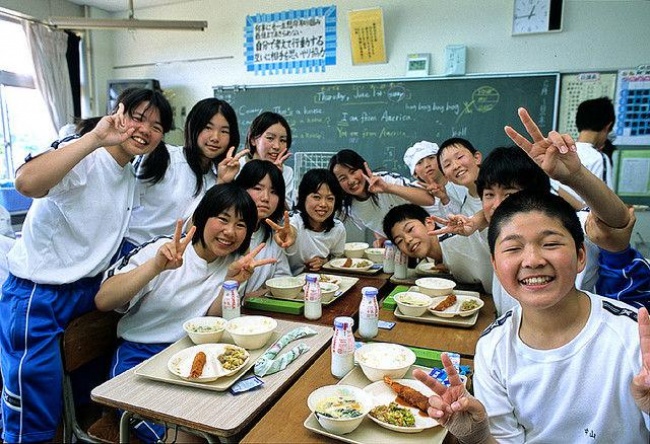
The students eat a balanced and healthy diet in the Japanese educational system. Throughout elementary and junior high school, the lunch is cooked according to a standardized menu developed by chefs and healthcare professionals. When the students get their food, they eat in the classroom along with the teacher.
There are many afterschool workshops in Japan

Many Japanese students will attend private afterschool workshops or enter a preparatory school to get into a good junior high school. Those classes are held in the evenings and it is common to see students returning from those extracurricular courses later in the day. Students in Japan have an eight hour school day but they also spend time studying on the holidays and weekends. Very few students in Japan ever repeat grades in primary or secondary school.
They learn Japanese calligraphy and poetry

Shodo, or Japanese calligraphy, involves writing with a bamboo brush after dipping it in ink. Japanese students learn how to do this popular calligraphy. They also learn haiku, a form of Japanese poetry that makes simple expressions to convey deep emotions. These classes help to teach students about their culture.
They wear school uniforms

The majority of junior high schools require students to wear school uniforms. Some schools have their own, unique attire but most school uniforms consist of a military style for boys and a sailor outfit for girls. It is intended to remove social barriers among students and it provides a sense of community among the children.
Attendance rate is very high
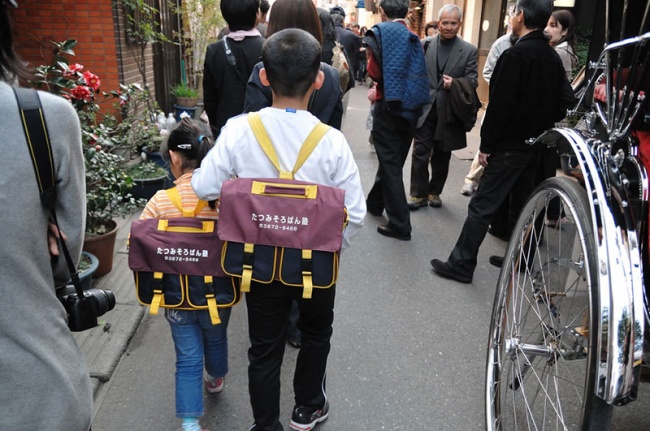
Most students skip school at some point in their life but Japanese students rarely ever do so and they are typically on time. They have a 99.99% school attendance rate. Even more interesting is that 91% of pupils say they never ignore what the teacher lectured in classes.
Their future is decided by a single test
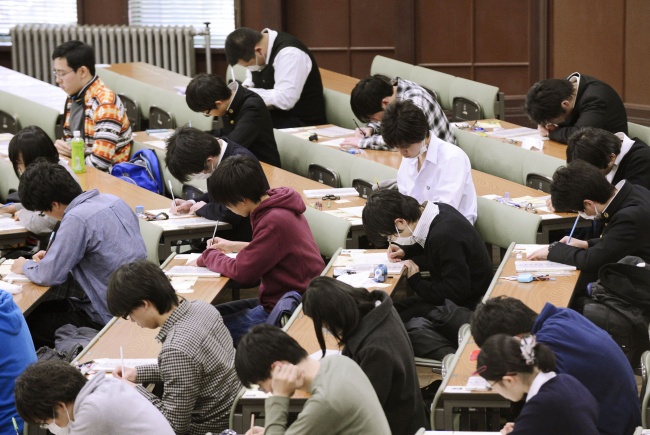
When high school is over, Japanese students must take an important exam that helps to shape their future. It lets them know what college they will attend, as colleges have certain score requirements. If they don’t reach that score, they will not likely get to go to college. Competition is tight and only 76% of school graduates continue their education after high school.
College years are a lot of fun
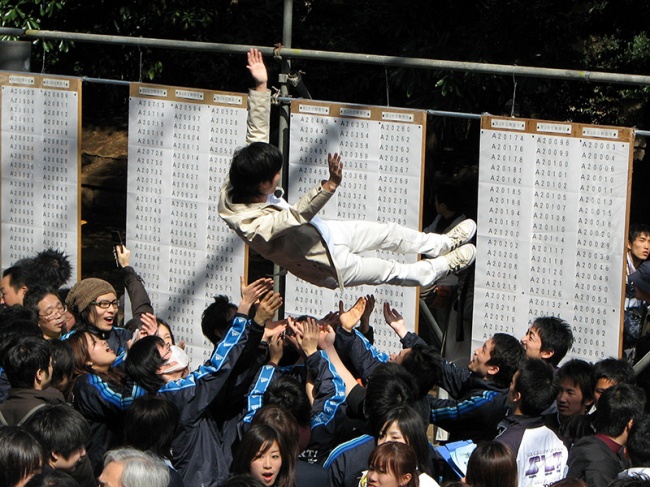
Having gone through such rigorous testing at the end of the school program, Japanese students typically take a well-deserved break. College is considered to be the best years of a person’s life and they even consider it to be a vacation before work.
Via: Bright Side
Be sure to share this with your friends on Facebook

